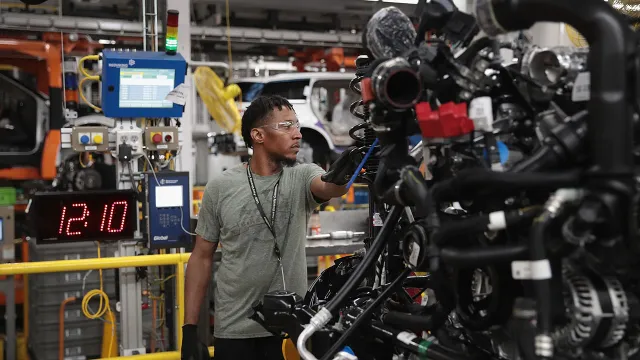Minimum wage is going up again—15 cities and states are getting raises starting July

Starting July 1, more than 800,000 workers across Alaska, Oregon, Washington, D.C., and 12 additional cities and counties will receive higher wages, according to new data from the Economic Policy Institute (EPI). These minimum wage increases are part of a growing trend among states and municipalities to address rising living costs, especially as the federal minimum wage continues to stagnate at $7.25 per hour—a rate that hasn’t changed since 2009.
With the cost of living steadily climbing over the past decade, many local governments have opted to raise their baseline wages through a mix of legislation, voter-approved measures, and automatic inflation adjustments.
“These minimum wage increases will put more money in workers’ pockets, helping many of them and their families make ends meet,” said Sebastian Martinez Hickey, state economic analyst at EPI. “The average increase in annual wages for a full-time, year-round worker resulting from these minimum wage hikes ranges from $420 in Oregon to $925 in Alaska.”
According to EPI’s breakdown, women make up 58% of the workforce set to benefit. Black and Hispanic workers are also expected to gain disproportionately from the upcoming raises.
Although Congress has periodically introduced legislation to raise the national minimum wage, no effort has succeeded in over a decade. The latest attempt came earlier this month when Republican Senator Josh Hawley of Missouri and Democratic Senator Peter Welch of Vermont proposed raising the federal rate to $15 per hour.
Statewide Pay Increases in Alaska, Oregon, and D.C.
In Alaska, the minimum wage will increase by $1.09, bringing the rate to $13.00 per hour. The hike, approved by a voter-led ballot initiative, is projected to impact 19,400 workers, about 6.3% of the state’s labor force. The EPI estimates that a full-time worker will earn an additional $925 annually under the new rate.
Washington, D.C. will also raise its minimum wage, from $17.50 to $17.95 per hour, a 45-cent increase triggered by an inflation adjustment. The higher rate will benefit approximately 62,200 workers, or 7.5% of the workforce in the nation’s capital. Full-time workers there are expected to earn $727 more per year.
In Oregon, the minimum wage will increase 35 cents to $15.05 per hour, also due to an inflation-linked adjustment. This affects 801,700 workers, or 9.4% of the state’s workforce. According to EPI, the average full-time worker will take home an additional $420 each year.
Additional Increases in Cities and Counties
Alongside these statewide changes, 12 local jurisdictions in California, Illinois, and Maryland will implement their own minimum wage hikes starting in July:
- Alameda, California: The minimum wage will rise 46 cents to $17.46
- Berkeley, California: The minimum wage will rise 51 cents to $19.18
- Emeryville, California: The minimum wage will rise 54 cents to $19.90
- Fremont, California: The minimum wage will rise 45 cents to $17.75
- Los Angeles, California: The baseline wage will rise 59 cents to $17.87
- Los Angeles County, California: The minimum wage will rise 54 cents to $17.81
- Milpitas, California: The minimum wage will rise 50 cents to $18.20
- Pasadena, California: The minimum wage will rise 54 cents to $18.04
- San Francisco, California: The minimum wage will rise 51 cents to $19.18
- Santa Monica, California: The minimum wage will rise 54 cents to $17.81
- Chicago, Illinois: The minimum wage will rise 40 cents to $16.60
- Montgomery County, Maryland: The minimum wage will rise 50 cents to $17.65
Note to readers: The information presented is based on verified data from the Economic Policy Institute and federal labor reports. All statistics and quotes are directly sourced for transparency and accuracy.



